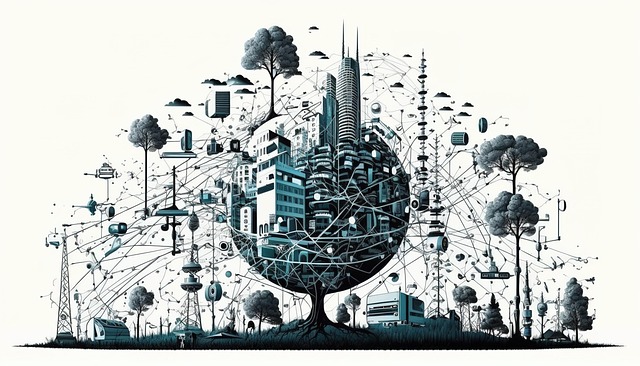Disruptive Technologies: Revolutionizing Industries and Shaping the Future
Technological advancements have always been at the forefront of shaping industries and driving innovation. In recent years, the term "disruptive technologies" has gained prominence, referring to innovations that completely transform traditional markets and business models. These game-changing technologies have the power to revolutionize industries, spark economic growth, and change the way we live and work.
One prime example of a disruptive technology is the rise of the sharing economy, with companies like Uber and Airbnb redefining transportation and hospitality sectors. This trend showcases how technology can create entirely new business models that challenge established norms. The sharing economy not only meets consumer demands for convenience but also opens up new income opportunities for individuals.
Another remarkable advancement is the Internet of Things (IoT), which involves connecting everyday devices to the internet, enabling them to send and receive data. From smart homes to industrial automation, IoT is transforming how we interact with the world around us. This technology has applications across various sectors, from healthcare and agriculture to manufacturing and transportation.
Artificial Intelligence (AI) is yet another revolutionary technology that's making waves across industries. Machine learning algorithms analyze vast amounts of data to provide insights and solutions. This has wide-ranging implications, from personalized marketing strategies to enhancing medical diagnoses. AI's ability to learn and adapt is ushering in a new era of efficiency and customization.
Blockchain technology, initially associated with cryptocurrencies, has extended its impact beyond digital currencies. Its decentralized and secure nature has found applications in supply chain management, healthcare data sharing, and even voting systems. Blockchain's ability to ensure transparency and security is transforming industries where data integrity is paramount.
Renewable energy solutions are also disrupting the energy sector. Solar and wind power technologies are becoming more affordable and efficient, reducing our reliance on fossil fuels. This shift not only addresses environmental concerns but also reshapes the energy industry's landscape and economics.
As these technologies continue to evolve, business leaders must adapt to stay competitive. Traditional business models are being challenged, and companies need to embrace these innovations to thrive. Incorporating these technologies often requires significant investments in research, development, and infrastructure, but the long-term benefits far outweigh the initial costs.
For MBA graduates, understanding disruptive technologies is crucial. The ability to identify emerging trends and their potential impact equips business leaders with the tools to make informed decisions. Additionally, these technologies offer new avenues for entrepreneurship. With barriers to entry lowered in many industries, innovative startups can quickly gain traction and disrupt established players.
Embracing Disruption
Adopting disruptive technologies involves more than just implementing new tools. It requires a cultural shift within organizations. Company leaders must foster a culture of innovation, encouraging employees to experiment with new ideas and approaches. This mindset can lead to groundbreaking developments that set companies apart in a rapidly changing landscape.
Challenges and Considerations
While the potential benefits of disruptive technologies are immense, there are challenges to navigate. Data privacy and security concerns, ethical implications of AI, and regulatory hurdles are just a few examples. As these technologies outpace existing laws and regulations, businesses and governments must work together to establish appropriate frameworks.
The Road Ahead
Disruptive technologies are not isolated trends; they represent an ongoing shift in how we interact with the world and conduct business. Staying informed about these technologies and their potential applications is essential for professionals across industries.
Whether you're in finance, healthcare, or manufacturing, disruptive technologies are shaping your sector's future. Embracing these innovations, understanding their implications, and proactively seeking ways to integrate them will be key to staying competitive in the ever-evolving business landscape.







